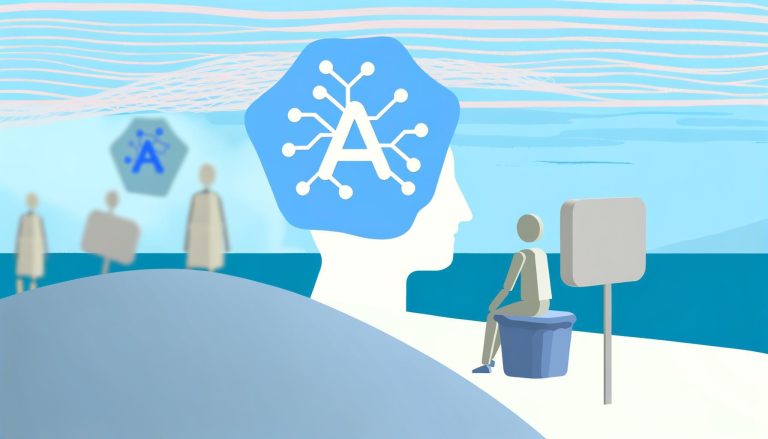Psychodrama, an experiential form of therapy that relies on role-play and dramatic self-presentation, has been a cornerstone in group therapy for decades. With the advent of Artificial Intelligence (AI) and digital platforms, psychodrama techniques have evolved, unlocking new potentials for enhancing group therapy. AI-assisted psychodrama brings innovative ways to facilitate emotional expression, insight, and behavioral change through digital role-play. This article explores the various AI-assisted psychodrama techniques and their benefits, offering practical insights for integrating these methods into group therapy sessions.
Introduction
Psychodrama in its traditional form has proven effective in helping individuals navigate personal challenges within a group setting. The incorporation of AI-driven tools introduces a new layer of depth to these therapeutic experiences. By integrating AI into psychodrama techniques, therapists can offer digitally mediated experiences that promote emotional healing and interpersonal growth. These AI techniques are designed not to replace human interaction but to augment it, creating a more immersive and supportive therapeutic environment.
AI-Assisted Psychodrama Techniques
1. Virtual Reality (VR) Role-Play
Virtual Reality (VR) can create immersive environments where participants enact scenarios relevant to their personal and relational struggles. AI helps to render realistic avatars and settings, which are crucial for the suspension of disbelief:
- Enhanced Emotional Engagement: Participants interact with AI-driven avatars, which can respond with realistic emotional reactions. This fosters a deeper connection and engagement.
- Safe Exploration: VR provides a safe space for individuals to confront their fears and anxieties. They can practice new behaviors without real-world repercussions.
- Detailed Feedback: AI algorithms in VR systems can analyze participants’ interactions and provide therapists with insights into their behavioral patterns and emotional states.
2. AI-powered Chatbots
Chatbots equipped with natural language processing (NLP) can facilitate role-playing exercises:
- Simulated Conversations: Chatbots simulate conversations with various characters, helping participants explore different perspectives and enhance empathy.
- 24/7 Availability: These chatbots are available around the clock, allowing participants to engage in therapeutic exercises anytime they feel the need.
- Data Analysis: The interactions with chatbots can be analyzed to identify emotional triggers and thought patterns, providing valuable data for therapists.
3. Digital Storytelling Platforms
These platforms utilize AI to help participants craft and share their personal narratives:
- Interactive Storylines: AI can generate interactive storylines based on participants’ inputs, encouraging creativity and self-expression.
- Emotion Recognition: Utilizing AI for sentiment analysis, these platforms can adapt narratives in real-time, making the therapeutic process more personalized and effective.
- Collaborative Storytelling: Group members can collaboratively build stories, fostering teamwork and enhancing their emotional bonds.
Benefits of AI-Assisted Psychodrama in Group Therapy
Enhanced Emotional Insight
AI technologies can analyze verbal and non-verbal cues to provide deeper emotional insights:
- Real-time Analysis: AI can offer real-time emotional analysis, helping participants understand their emotions better as they arise.
- Stress Reduction: With immediate feedback, participants can address emotional distress more effectively, reducing stress and enhancing overall well-being.
Accessibility and Inclusivity
AI-assisted techniques make psychodrama more accessible to diverse populations:
- Remote Access: Participants can join sessions from any location, making therapy accessible to those who may otherwise be geographically restricted.
- Language Translation: AI can offer real-time language translation, ensuring that non-native speakers can fully participate in group therapy.
- Personalization: AI can tailor therapeutic experiences to meet individual needs, ensuring inclusivity and making therapy more efficient.
Practical Tips for Integrating AI in Group Therapy
- Start Small: Begin with integrating a single AI tool, such as chatbots, and gradually incorporate more complex technologies like VR as comfort levels increase.
- Training: Ensure therapists receive adequate training on how to use AI tools effectively to facilitate psychodrama sessions.
- Feedback Loop: Regularly gather feedback from participants to refine and improve the AI-assisted techniques being used.
- Collaborative Approach: Work closely with AI developers to customize tools that align with therapeutic goals and ethical considerations.
Conclusion
AI-assisted psychodrama techniques represent a revolutionary shift in the landscape of group therapy. By leveraging the potential of AI, therapists can offer more immersive, personalized, and effective therapeutic experiences. These advanced techniques not only enhance emotional insight and accessibility but also foster a deeper connection among participants. As we continue to explore the intersection between AI and psychodrama, it is essential to focus on ethical considerations and maintain the human touch that lies at the heart of all therapeutic endeavors.
For those looking to explore more innovative approaches to mental well-being, incorporating tools like the Zenora App can help. With features such as mood and habit tracking, goal setting, and personalized counseling, Zenora offers a comprehensive platform to support mental health journey effectively.





